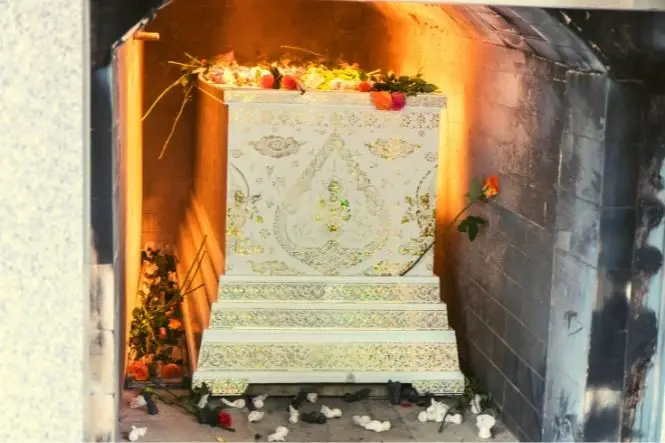Often, people believe that cremation does not include a traditional funeral or viewing service, which is entirely untrue. Exploring options and learning the differences between cremation versus burial will help you decide the proper service for you or your loved one. Choosing the right afterlife service is not difficult once you know there are options for every budget, religion, lifestyle, and belief.
Comparing funeral services like cremation and burial has their benefits, including the price, religious impact, and more. Cremation is significantly cheaper and can be more environmentally friendly than burial but it is strictly forbidden under some religions.
Often, people believe that cremation does not include a traditional funeral or viewing service, which is entirely untrue. Exploring options and learning the differences between cremation versus burial will help you decide the proper service for you or your loved one. Choosing the right afterlife service is not difficult once you know there are options for every budget, religion, lifestyle, and belief.
Cremation Versus Burial
There are many differences between cremation and burial. These differences include the cost, environmental effects, and more.
In many cases, religion plays a major factor in the type of funeral service someone will have. Viewing is a traditional part of funeral services. Both cremation and burial offer traditional viewing services where family members and loved ones may give final words.
Environmental Impacts
Every type of after-life plan has drawbacks on the environment. The environmental impacts often cause people to choose one type of afterlife arrangement over another because they are concerned with how their bodies will impact the environment.
Educating yourself on how cremation and burial affect the earth can influence you to choose an option that supports your personal beliefs.
Cremation
While many people believe that cremation is a green afterlife arrangement, several drawbacks persuade people to choose other options like burial. Many people have great concern over potential pollutants released during the cremation process. However, the pollutants released from crematoriums are relatively low.
According to the EPA, cremation releases very little pollution. It has been deemed a low priority for regulation, which means that it is one of the more eco-friendly funeral rituals.
Generally, the only pollutants which cause concern for crematoriums come from dental fillings and artificial implants. While in the cremation process, these fillings and implants can release intense emissions. Luckily, the emissions are less than 1%, which means cremation is still the most eco-friendly option.
Burial
Traditional burial is not an eco-friendly way of passing into the afterlife. According to Dr. Arpad Vass, more than 450 compounds and gases are released from human bodies while they decay.
These excessive gasses released from the human body create a detrimental impact on Earth. Furthermore, the physical space required to bury bodies takes a major toll on the planet.
Religious Restrictions on Cremation
When it comes time to lay your loved one to rest, it is no time to sacrifice your religious beliefs, so knowing what religions accept cremation. You must also know which religions do not believe in cremation.
Catholics
Christians have a strict outlook on cremation. Since 1960, Catholics may cremate themselves or their loved ones. This rule comes with one exception that they must bury themselves after cremation. Taking home or scattering ashes is not permitted, according to the Catholic church.
Christian Baptist and Eastern Orthodox
Baptist Christians do not permit cremation under any circumstances. The only funeral service permitted for people of the Christian Baptist or Eastern Orthodox Church is burial.
Judaism
According to traditional Judaism beliefs, Jews cannot cremate themselves. Jewish people have mostly shunned the practice of cremation until recently.
Hinduism
Cremation is required for people of Hinduism because it ensures the safe passage from this life to the next. Without cremating the body, there is no certainty that the soul of one’s body can make safe passage into their next life.
Muslims
The Muslim religion forbids the practice of cremation. It is considered an unclean practice that leaves the body impure. Instead, Muslims must bury the body within the day of death to ensure safe passage.
Economic Factors
Cost is a major factor when it comes to choosing afterlife arrangements. Depending on your available budget, some choices can be more cost-effective than others.
Cremation
Cremation is traditionally a cheaper method than burial because you do not require a casket. Most crematoriums offer packages, including cremation, a vase, and sometimes a pre-cremation service.
The price for these services varies per area, meaning they will cost a different amount based on your location. Generally, the price will range anywhere from $1000 to $4000, depending on the type of cremation you choose. There are also plenty of budget options.
Burial
Burial is a more expensive option because you must pay for the burial plot, casket, and embalming service. Funeral homes offer these in packages, which typically start at around $5000 and upwards.
All prices change based on your location, meaning they will vary where you live. Some funeral homes offer discounted prices and payment plans for those who cannot pay in full. In times of distress when losing loved ones, funeral homes understand the


